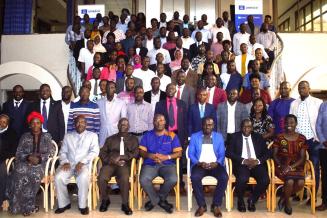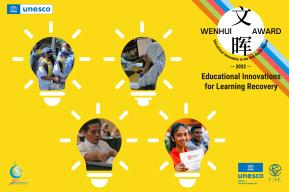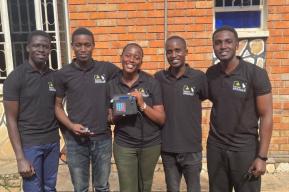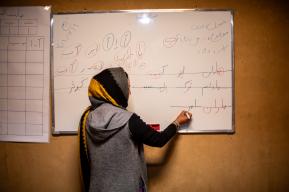Jacqueline Kalule Kutesa is a head teacher at St. James Secondary School Jinja District in Uganda. She, like many head teachers has faced difficulties in hiring staff in the past. “It is easy for anyone to come and claim that they are teachers, and they might have adopted teaching through competencies and practice but not through proper systems” she explains. Soon, Jacqueline will no longer face this issue as the Government is making concrete progress in centralizing, digitizing and harmonizing teacher certification.
In 2019, in response to a UNESCO study (TISSA, 2014) which revealed that Uganda faces challenges in teacher quantity and quality and data collection, the Government, with support from UNESCO’s CapED Programme, developed a Teacher Management Information System (TMIS). Launched in 2019, the online TMIS aims to harmonize teacher records. For head teachers like Jacqueline, it means that all schools HR teams will be able to check the validity of prospective teachers’ documentation using the TMIS’s online verification tool. “TMIS will help us to get authentic teachers,” said Jacqueline.
The impact of TMIS goes far beyond being a tool for smoother, safer hiring processes. It is part of a larger effort to strengthen the country’s Education Management Information System (EMIS). Currently, the Ministry of Education and Sports is upgrading the EMIS which has not been fully functional since 2017. As part of the upgrade, the Ministry plans to migrate quality data from different sources and consolidate these into one hub where validated, quality information can be easily obtained. TMIS will provide the primary source of data on teachers. These systems will better place the Government to make evidence-based policy decisions founded on reliable, timely, internally produced data. With more and more of Uganda’s teachers registered on the platform, Uganda will have visibility on the total number of qualified teachers in the country and how they are distributed. They will also be able to sex-disaggregate data which will shed light on equity issues. Ministry staff can then use the data to contribute to making informed decisions on education plans and resource allocations.

To date, over 200,000 public and private teachers have registered on the TMIS platform. In January 2023, UNESCO supported the MoES hold a training targeting private education and training institutions managers, directors and teachers across three districts (Jinja, Mukono and Kampala). The event included training on how to register on the platform and how to use the system for improved HR processes. During the event, MoES staff demonstrated the step-by-step process of registering on the platform, creating an account, uploading documents and finally on accessing e-certificates of successful registration, as well as how to verify the information of prospective teachers.
Ananias Semusu, a teacher of Luganda and Entrepreneurship, and chairperson of private school owners in Kawempe commended the establishment of the TMIS and observed that the system will have profound impact on teachers’ lives. “TMIS creates a database of teachers who are qualified but may not yet be employed into a pool where the Ministry of Education can draw from when faced with inadequacy.”
Looking ahead, it is expected that, the teachers and managers who have been trained will pass on their knowledge to other teachers within their communities. As a testament to their commitment, the Teacher Education and Training Department (TETD) that approves and certifies teachers on the TMIS platform committed to prioritizing the certification of teachers identified as lead trainers with a view of enabling them to duly conduct regional trainings to increase teacher registration on the platform.
- More on UNESCO’s CapED Programme







